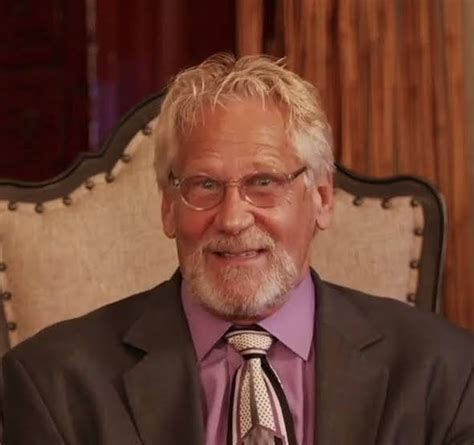A Quote by Frans de Waal
Empathy as a complex emotion is different. It requires awareness of the other person's feelings and of one's own reactions. The appropriate reaction may not be to cry when another person cries, but to reassure them, or even to leave them alone.
Related Quotes
But the things is, you see, that two people can never actually become one no matter how close they are. And it would not be desirable even if it were possible. What would happen when one of them died? It would leave the other as a half a person, and that would be a dreadful thing. We must each be a whole person and therefore we each need some privacy to be alone with ourselves and our own feelings.
Empathy occurs when we suspend our single-minded focus of attention and instead adopt a double-minded foucus of attention. When our attention lapses into single focus, empathy has been turned off. When we shift our attention to dual focus empathy has been turned on. Empathy is our ability to identify what someone else is thinking or feeling and to respond to there thought or feelings with an approriate emotion. Empathy makes the other person feel valued, enabling them to feel that their thoughts and feelings have been heard.
As my body lay dead on that stretcher (he later recovered from being struck by lightning attracted by his cell phone), I was reliving every moment of my life, including my emotions, attitudes, and motivations. The depth of emotion I experienced during this life review was astonishing. Not only could I feel the way both I and the other person had felt when an incident took place, I could also feel the feelings of the next person they reacted to. I was in a chain reaction of emotion, one that showed how deeply we affect one another.
This is a lesson about life: This is one person. This is another person. This is one person trying to understand another person, even though it doesn't have room to download the other person into it's brain. It cannot understand the other person, even though it tries to. So he ends up overflowing with knowledge.
The act of compassion begins with full attention, just as rapport does. You have to really see the person. If you see the person, then naturally, empathy arises. If you tune into the other person, you feel with them. If empathy arises, and if that person is in dire need, then empathic concern can come. You want to help them, and then that begins a compassionate act. So I'd say that compassion begins with attention.
I have even learned to respond to someone crying by just listening. In the old days I used to reach for the tissues, until I realized that passing a person a tissue may be just another way to shut them down, to take them out of their experience of sadness and grief. Now I just listen. When they have cried all they need to cry, they find me there with them.
Spouses have each other, and even when one eventually dies, they have memories of a time when they existed before that other person and can more readily imagine a life without them. Likewise, parents may have other children to be concerned with--a future to protect for them. To lose a sibling is to lose the one person with whom one shares a lifelong bond that is meant to continue on into the future.
I don't know if anyone has noticed but I only ever write about one thing: being alone. The fear of being alone, the desire to not be alone, the attempts we make to find our person, to keep our person, to convince our person to not leave us alone, the joy of being with our person and thus no longer alone, the devastation of being left alone. The need to hear the words: You are not alone.
What hurts this person is not the occurrence itself, for another person might not feel oppressed by this situation at all. What is hurting this person is the response he or she has uncritically adopted. It is not a demonstration of kindness or friendship to the people we care about to join them in indulging in wrongheaded, negative feelings.
A practice that is suitable for one person is not necessarily suitable for someone else, and a practice that is appropriate for one person at one time is not necessarily appropriate for that same person at another time. Buddha did not expect us to put all his teachings into practice right away--they are intended for a great variety of practitioners of different levels and dispositions.
In empathy, you don't speak at all. You speak with the eyes. You speak with your body. If you say any words at all, it's because you are not sure you are with the person. So you may say some words. But the words are not empathy. Empathy is when the other person feels the connection with what's alive in you.
Emotionally, a person can become so negatively driven that they don't respect the privilege of being on this Earth without their mother and their father. They may say it doesn't bother them, but there is something in us about those who are a biological part of us and don't care. People in that situation stop hearing the other voices that love them, hold them, trust them and tells them how great they are. They're focused on that one person who isn't answering them.





































